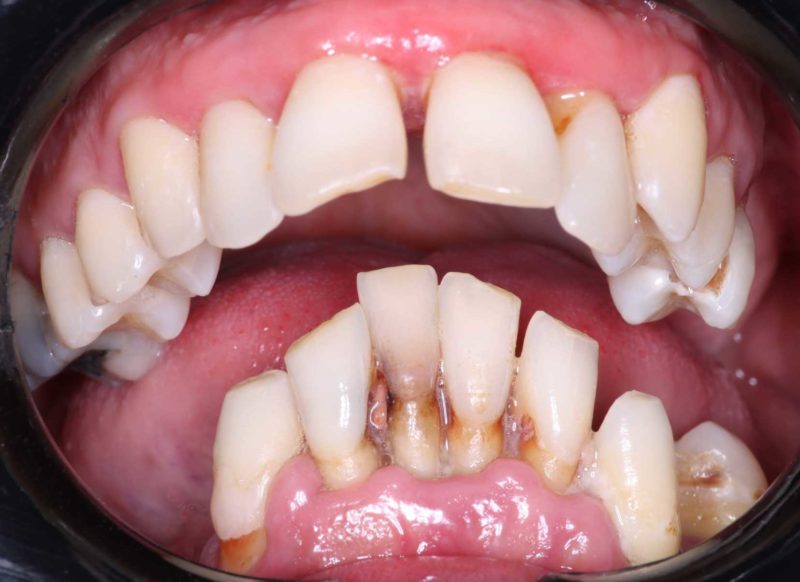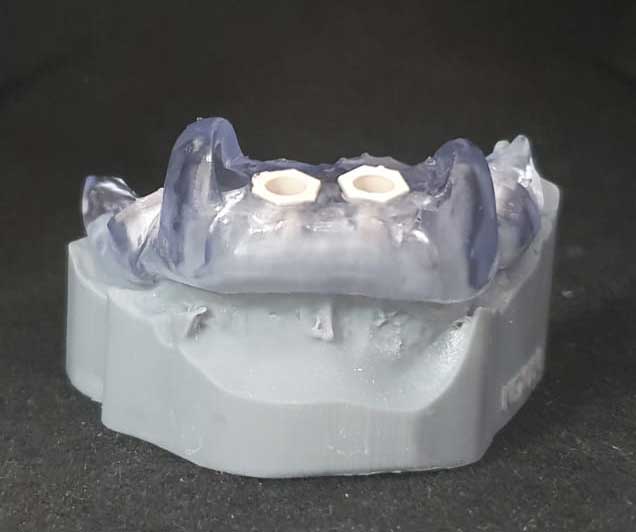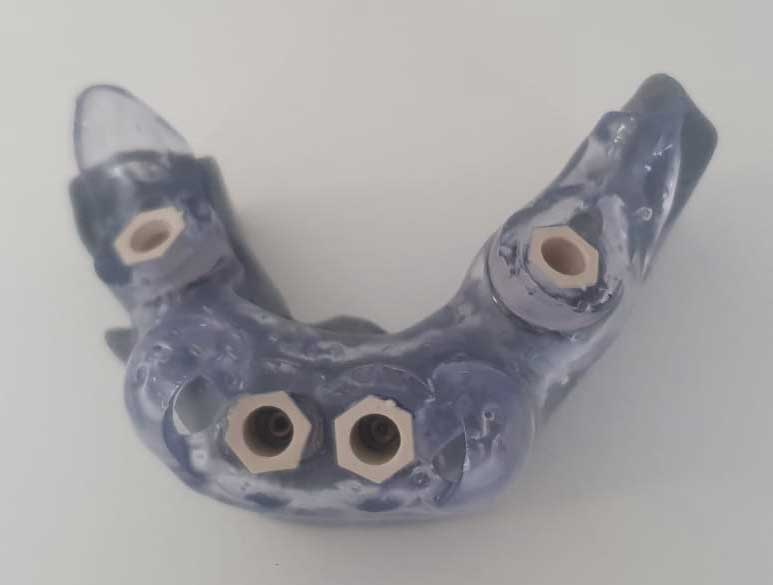Implant Insertion With Enhanced Offset In Guided Surgery

Dr. FRANCISCO LAITA BALDA
Country: Spain
Gallery



Patient's Data:
- Age: 42
- Sex: Male
- Smoker: Yes
- Pathologies: None
- Hygenic state: Poor
- Alergies: None
The patient comes to the dentist’s attention reporting pain and bleeding.
On physical examination, there is a marked widespread inflammation in the oral cavity associated with a third degree mobility of the dental elements of the lower arch. The patient’s expresses the desire is to completely resolve the pain and return to having a function and aesthetics in the shortest possible time.
Considering the physical and instrumental examination (OPT) and the patient’s requests, a non-surgical periodontal treatment is planned for the upper arch.
In the lower arch, teeth are extracted with the exception of the canines which have been maintained to ensure greater stability and precision of the surgical template. The contextual insertion of the implants according to the all-on-4 protocol with a full-guided flapless method and immediate prosthetic loading has been carried out with a protocol that includes a CBCT and an impression on which to program the virtual position of the implants in a safety relationship with noble anatomical structures (inferior alveolar nerve and mental nerve). Once all data have been digitalized we planned the position of the implants from which we obtained a surgical template with sleeves positioned at an increased +2 mm offset (to obviate the greater height of the soft tissues). The position of the sleeves required the use of the +2 +4 offset kit containing drills of longer length to allow the insertion of 12 mm implants.
The implants have been properly inserted with the flapless method (distal EV implants ø4 length 16mm – mesial implants 3P ø3.5 length 14mm) with a minimum torque of 35 NCm and have been connected to angled and straight MUAs on which the immediate temporary resin prosthesis will then be stabilized.
